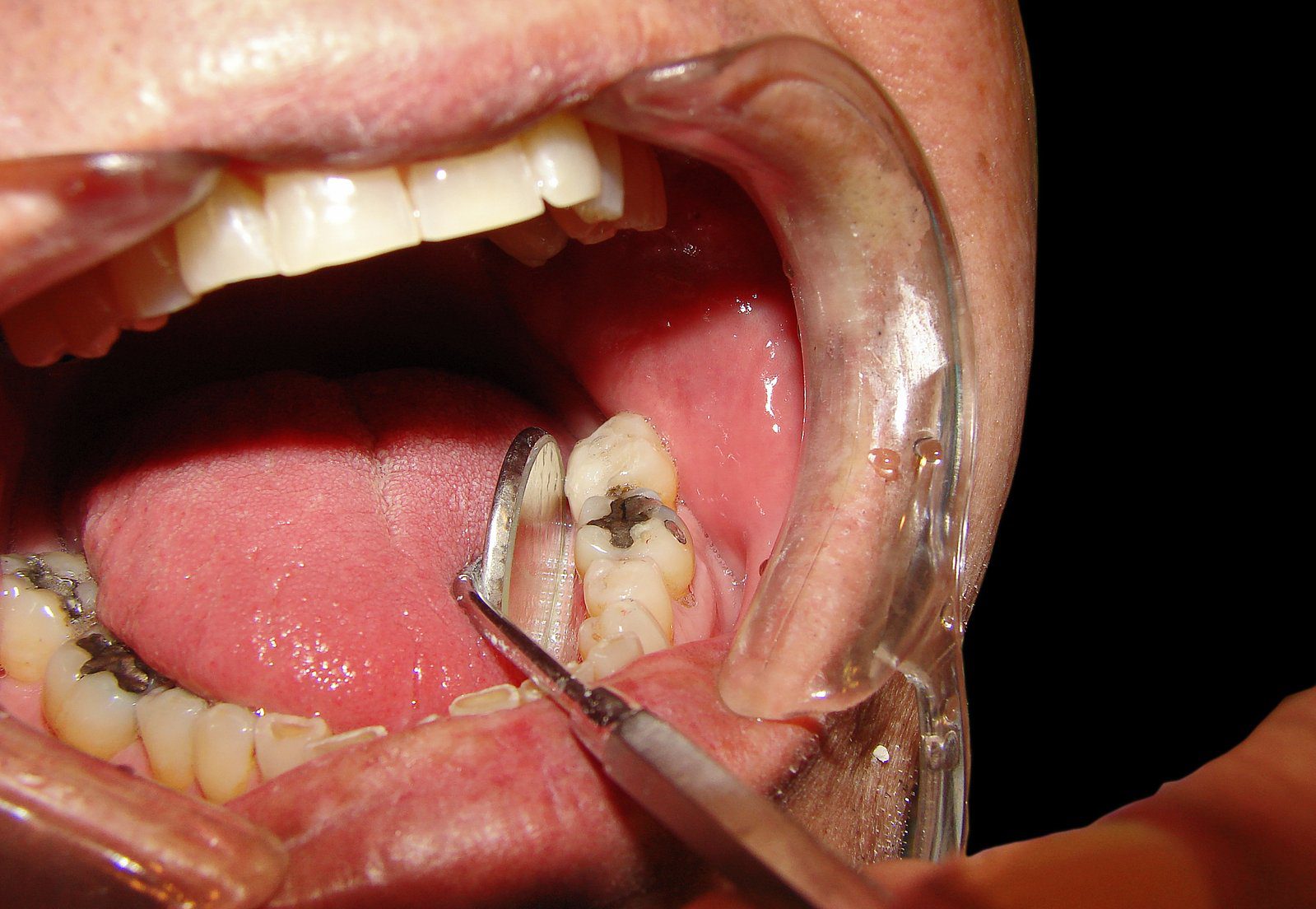Cracked teeth make up a significant portion of dental problems, and it’s no wonder. Your teeth are subject to constant abuse from all of the chomping, crunching, and chewing that goes on throughout the day. Add into that the unpredictability of life…

(Freeimages / Hector Landaeta)
- Maybe you dove into the shallow end of the swimming pool as a 10-year-old (even though you saw a “no diving” sign) and hit your teeth on the unforgiving bottom of the pool
- Perhaps a rogue baseball whopped you smack in the mouth during that Little League game
- During a long road trip, you ate one inexplicably hard Corn Nut
Given the many possibilities, it’s almost a miracle that more teeth aren’t cracked!
While dealing with a cracked baby tooth isn’t the end of the world, a cracked adult tooth can cause some significant problems in the future if it’s not addressed quickly.
Prevention
Of course, the best way to fix a broken tooth is not to have one in the first place. Hopefully your 10-year-old self had more common sense than mine did because that chipped tooth could have been pretty easily prevented. Unfortunately, there isn’t one single way to prevent chipped teeth, but common sense is a good starting place. Being careful about what you put into your mouth is another good way to avoid chips. Keep non-food objects such as pens and pencils out of your mouth, and don’t use your teeth to open anything. Even some foods such as ice and hard candy should be avoided if you have fragile teeth, so make sure that you’ve talked to your dentist about what kinds of foods are right for you.
Additionally, if you are involved in contact sports where, say, a hard spherical object could come hurtling toward your face at high speeds, wear a mouth guard. They are fairly inexpensive and can protect your entire mouth from harm.
Lastly, a proper diet and good oral hygiene are essential to keeping your teeth and gums as healthy as possible. Your diet supplies your body with the necessary minerals and nutrients to keep teeth strong, and brushing and flossing daily can help you ward off gum disease and other infections that can make teeth more prone to breaking.
Types of Damage
Fractured Cusp: This occurs when a piece of the chewing surface sloughs or breaks off. They aren’t usually cause for panic because they don’t often extend down toward the root, but you may want to visit your dentist at your earliest convenience. They might suggest bonding a composite resin to the chipped area or adding a crown or cap over the chip to prevent later cracking.
Cracked Tooth: A cracked tooth can become a significant problem if you leave it alone for too long. If you notice that your tooth is cracked vertically toward the root, you should call your dentist right away to schedule an appointment. They might need to do a root canal to save the tooth, but a deep enough crack may require the dentist to remove the tooth altogether.
Broken Teeth: This might happen vertically or horizontally and should be treated as quickly as possible. Often broken teeth will expose a nerve that can be exceptionally painful, and the break could cause further splitting and cracks if left alone for too long. Teeth that are decayed tend to break more easily than healthy teeth.
Craze Lines: You might have noticed tiny little cracks on your teeth appearing as you’ve gotten older. These little lines are superficial, common, and not usually cause for alarm.
Tooth Avulsion: Avulsion happens when the tooth is completely knocked out, and it is considered an emergency. If you can find the tooth, wrap it in wet gauze, but don’t touch the root if at all possible. Dentists can make full repairs under the right conditions if the tooth is brought in quickly.
Treatment Options
If you find yourself in a situation where you or someone you know has a chipped or broken tooth, there are some things that you can and should do. First of all, if the tooth was completely knocked out, try to find it, and call your dentist right away. If you are feeling any pain, you can take the recommended dosage of ibuprofen or acetaminophen to help lessen your discomfort, but keep calm. Make a warm saltwater solution, and rinse out your mouth. Apply a cold compress to the area if there is any swelling. If you have any bleeding, apply a soaked gauze bandage to the area until the bleeding stops.
In the event of a cracked or lost tooth, you need to see your dentist as soon as possible – preferably within 24 hours, but a small chip might not require immediate attention. If the chip creates a sharp surface, you can apply a small piece of orthodontic wax (available in the dental section of most grocery stores) to cover the sharp area until you can get in to see your dentist.
In Conclusion
As you go through life, it’s pretty likely that you or someone you know will experience a broken or cracked tooth at some point. The good news is that dentistry is a highly advanced science these days. With prompt care from a professional dentist, you will likely be able to return your bite to its former glory as if nothing had happened.
